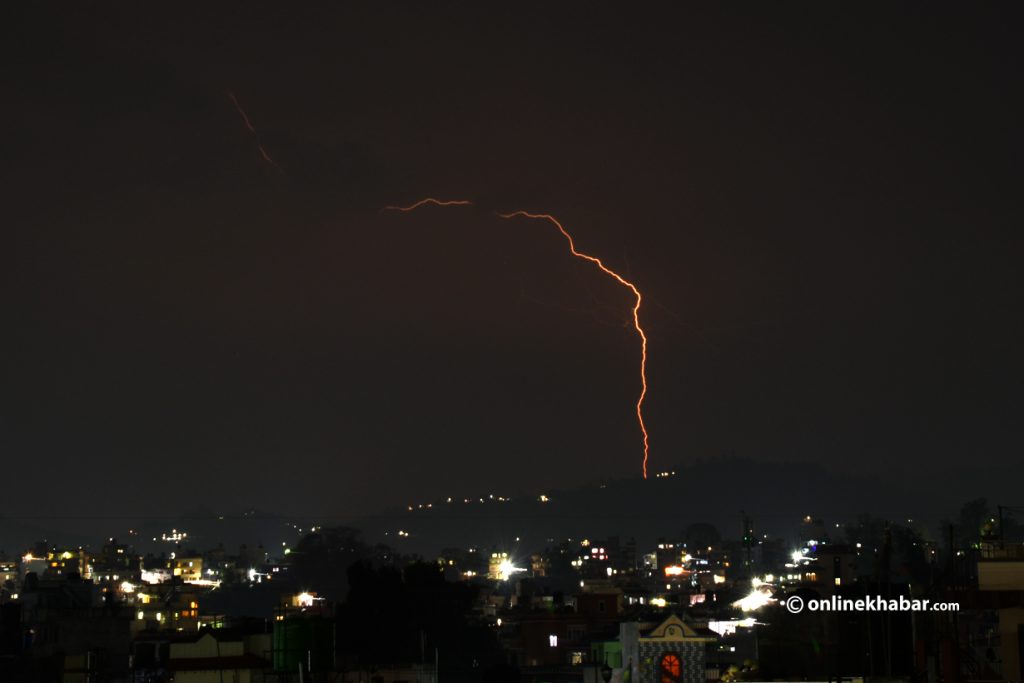Marie-Claude Frauenrath is a senior trade promotion officer at the International Trade Centre (ITC), a joint agency of the World Trade Organization and the UN Conference on Trade and Development (UNCTAD). ITC works in developing countries providing technical assistance to governments and the private sector to enhance their capacity to reap benefits from international trade and various agreements signed under the World Trade organization. We spoke to Frauenrath, who works at the ITC’s Office of Asia and the Pacific, looking after the European Union-funded Nepal Trade and Investment Programme (TIP) about her experience with the project that is focused on specialty coffee and chyangra pashmina.

First of all, could you briefly tell us what TIP is all about?
Thank you for the question. Broadly speaking, TIP is a project that was envisaged with the overarching goal of enhancing Nepal’s capacity to participate in international trade to increase income and create jobs. The European Union stepped in to provide the funding needed to implement this vision in collaboration with the government of Nepal, the owner of the project.
Through stakeholder consultations, we came up with four specific areas where ITC’s assistance would be directed. First, at a macro level, we work with the government of Nepal to enhance the capacity of the officials to formulate new effective policies, harmonise existing policies and actively participate in multilateral trade negotiation platforms. Second, at a meso level, we work with the government and trade support institutions to enhance Nepal’s capacity to implement the World Trade Organization’s landmark Trade Facilitation Agreement, which is expected to reduce the cost of doing international trade by up to 15 per cent, especially for least developed countries.
We also identified two high-value niche market Nepali products with unexplored export potential that may help Nepal bridge its growing trade deficit with the rest of the world, namely specialty coffee and chyangra pashmina. We work with stakeholders from both sectors to improve nods along the value chain and to link the products to regional and international markets.
The project started amid the Covid-19 pandemic. How has it impacted progress so far?
The pandemic has been touted as one of the biggest challenges to humanity since the Second World War. Evidently, the project was also affected. We had to postpone a number of activities, or, when possible, organise them virtually. For example, we organised the theoretical part of the training on speciality coffee virtually, hoping that the practical part could be organised in person when pandemic-related restrictions are relaxed.
The government of Nepal, especially the Ministry of Industry, Commerce, and Supplies has been very cooperative in facilitating the continuation of our work during the pandemic.
The project also commissioned a study on the impact of Covid-19 on Nepal’s international trade sector. We recently organised a public-private dialogue in Bhairahawa of Lumbini to discuss the draft report. The local businesses were happy to get to talk to senior officials from the ministry and share their problems. We plan to organise more such events in the days to come.
Could you highlight some of the achievements of the project so far?
The biggest achievement for us has come in the pashmina sector. Chyangra herders in the Mustang region, who would otherwise barter pashmina wool for essentials in Tibet, were able to sell their produce to local businesses for the first time last year thanks to a platform provided by the project.
Similarly, the project supported Nepal to present the official notification to the WTO on the indicative dates of implementation of the Trade Facilitation Agreement provisions under Category C. It will continue to provide technical assistance to Nepal to implement the selected Category C measures. In addition to that, ITC has made its market data access tool available on the Nepal Trade Data Portal. The tool will help exporters, researchers, as well as policymakers, gain an in-depth understanding of international trade.
In the coffee sector, we have introduced ITC’s Quality Champions programme. Under the programme, professionals from the coffee sector are receiving year-long training on quality standards, which they can then give on in the form of advice, coaching and training. These professionals will help to continuously enhance the quality of Nepali coffee in the days to come, also after the project has been completed.
What are some of the challenges the project faces in addition to the Covid-19 pandemic?
The main challenge has been to coordinate with all the relevant stakeholders in Nepal, including the various government agencies as most agencies are understaffed and very busy. But, we have found them to be very committed to their work and willing to provide valuable feedback and comments, one only has to allocate the needed time.
What is the European Union’s feedback on the project?
Ambassador Nona Deprez, the head of the EU Delegation to Nepal, recently visited pashmina farmers in Mustang. She was happy that farmers could sell their produce to Nepali businesses, and that the project had provided a platform for them to interact with manufacturers.
A high-level delegation from Brussels also visited coffee-growing areas in Kavre recently. Members of the delegation, who tasted Nepali coffee, were looking forward that one day, they get to buy the coffee in stores across Europe.
Going into the new year, what do you think will be the highlights of the project?
Well, we will continue the work we are doing in close collaboration with the Ministry of Industry Commerce and Supplies and our private sector partner. We hope the pandemic will get over soon so that we can organise our activities in person.
We also hope that the collaboration between the ITC and the government of Nepal can be expanded to other areas with export potentials, such as IT-enabled services, green production and tourism.




















